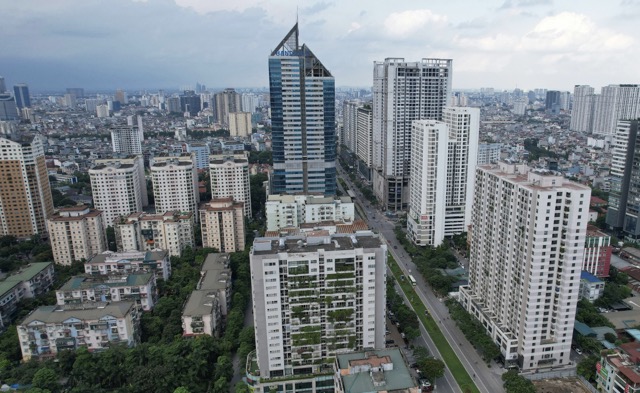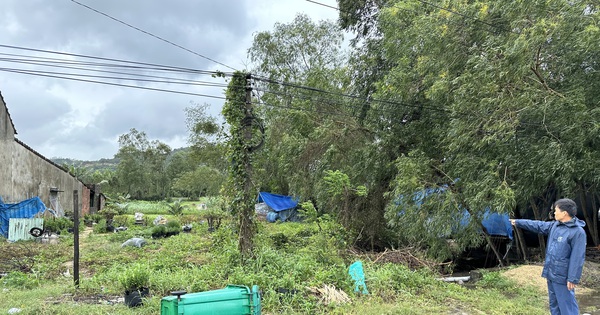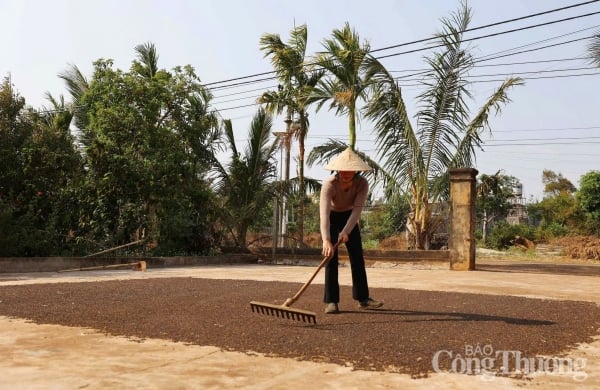The state intervenes in the real estate market if prices fluctuate sharply.
According to the newly implemented decree, when the real estate transaction price index fluctuates by more than 20% in 3 months, ministries and branches will have to propose measures to regulate the market.
Legalizing the regulatory role of the State
The Ministry of Construction will have to assess the real estate market situation as a basis for proposing market regulation, this is a regulation set forth in Article 34, Decree 96/2024/ND-CP and has been effective since August 1.
Notably, according to the provisions of Clause 2, the proposal of regulatory measures will be implemented when the real estate transaction price index fluctuates by more than 20% in 3 months or the market has changes that affect socio-economic stability.
 |
| The State will regulate the market by adjusting planning, land use plans, construction plans... Photo: Pexels |
Previously, Article 78 of the 2023 Law on Real Estate Business clearly stated the measures that the State takes to regulate the real estate market, including:
Adjusting planning, land use plans, construction plans, programs, urban and housing development plans to implement real estate projects.
Adjusting supply and structure of the real estate market through adjusting the goals, scale, progress, and product structure of real estate projects.
Tax payment extension for entities operating in the real estate business sector facing special difficulties in each period.
Support preferential interest rate loans for customers and real estate businesses for types of real estate that need support and priority for development.
Manage financial and credit policies for the real estate business sector in accordance with market conditions in each period.
Implement other policies to regulate the real estate market in each period.
Regarding the specific responsibilities of agencies, Decree 96/2024/ND-CP stipulates that the Ministry of Construction will preside over and coordinate with ministries, ministerial-level agencies, and provincial People's Committees to synthesize information and propose measures to regulate the real estate market.
In addition, the Ministry of Construction will also be the agency proposing measures on urban planning, construction, housing, real estate business; on programs and plans for urban development, housing, real estate; and on the structure of real estate products.
In addition, the Ministry of Planning and Investment will have the role of proposing legal policies on investment and bidding; the Ministry of Natural Resources and Environment will propose legal policies on land.
The Ministry of Finance proposes regulations on tax, finance, securities, and corporate bonds; the State Bank proposes measures on credit law and policy.
Provincial People's Committees will review the implementation of real estate projects of localities and enterprises and propose measures to regulate the real estate market in the area.
Previously, Mr. Hoang Thanh Tung, Chairman of the National Assembly’s Law Committee, predicted that the new regulations would help bring land valuation closer to the market. However, this also means that real estate project prices could increase.
Therefore, Mr. Tung suggested that the Government should be proactive in regulating real estate prices, through strongly developing the social housing segment suitable to people's affordability. At the same time, the approval of housing projects should also be accelerated by management agencies, in order to increase supply to the market.
"The government needs solutions and is ready to intervene when the market shows signs of overheating and virtual fever," Mr. Tung emphasized.
The story of “rescuing” the market in China
In China, where the real estate market is still struggling, the government is actively implementing market intervention measures to reduce real estate inventory.
In May 2024, the Chinese government launched major policies to stimulate the market, including measures to loosen mortgage regulations, reduce down payment rates, and especially call on local governments to buy back millions of unsold homes.
Not only that, the People's Bank of China (PBOC) also announced a credit package of up to 300 billion yuan (42 billion USD) to support local governments and state-owned enterprises to buy back unsold houses and convert them into affordable housing.
Along with the efforts of the Chinese government, local governments and organizations have also quickly stepped in. More than 60 cities have announced support policies to solve the housing surplus, including Shanghai, Shenzhen, Guangzhou, Nanjing, etc.
In Zhengzhou, for example, some state-owned enterprises have a plan to buy homes built in the last 20 years or so to convert into affordable rental housing. The city aims to complete 10,000 deals through this and other approaches this year.
Source: https://baodautu.vn/batdongsan/nha-nuoc-can-thiep-thi-truong-bat-dong-san-neu-gia-bien-dong-manh-d221678.html








































![[Photo] Prime Minister Pham Minh Chinh chairs Government Conference with localities on economic growth](https://vstatic.vietnam.vn/vietnam/resource/IMAGE/2025/2/21/f34583484f2643a2a2b72168a0d64baa)




























































Comment (0)